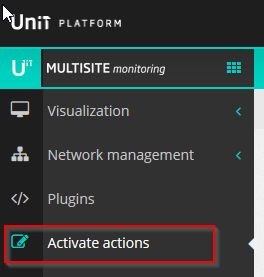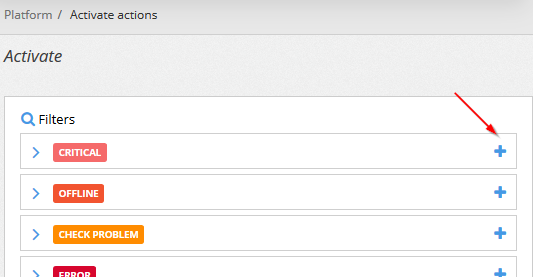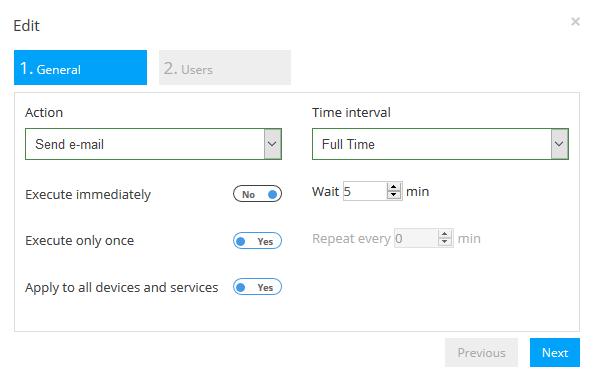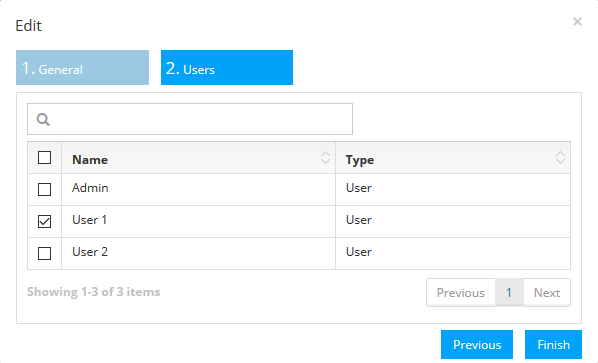To enable e-mail notifications, go to Multisite Monitoring and click on Activate actions:

Activate actions menu
Choose a status that you want to be notified about. For this example, we will configure notifications for cases where a service changes its status to CRITICAL. Click the add button on the right side:

Add action

Activate notifications by e-mail
In this popup, select:
- Action: Send e-mail;
- Time interval: Full time;
- Execute immediately: if you want to receive the messages immediately, choose “yes”. If not, you should specify the time, in minutes, that the system will wait before sending the messages (recommended: 5 minutes);
- Execute only once: this option allows to configure recurrences. By choosing “no”, the system will resend the messages at the specified interval. Recommended: “yes” (send only once).
- Apply to all devices and services: when choosing “yes”, notifications will be sent for all devices and services. If you need to enable a notification for specific devices and/or services, choose “no” and select the specific items in the tabs “Devices” and “Services”.
Click Next.
In the following popup, select the users that should receive the e-mails:

Select the users that will receive the e-mails
Click Finish to enable the action.
Usage cases
This system has the ability to cover the following usage examples:
- Send a message if a service is in ERROR status for more than 10 minutes.
- Send a message every 30 minutes if a service goes into CRITICAL and remains in this status.
- Send a message if a service is in CRITICAL status for 20 minutes. If the service continues in this status, repeat the message every 5 minutes.
- Send a message immediately after a service goes int CRITICAL status. If the service continues in this status, repeat message every 15 minutes.
Recommendations
- Avoid creating various rules for the same status and same devices and/or services with similar objectives. This can increase the volume of notifications, because every rule is processed independently from each other.
- For services that change status too frequently: choose “no” in the option “Execute immediately”, and specify a time delay, example: 5 minutes. This will make the system wait and send the messages only if the service remains in a problem status for the time specified.
- Configure recurrences only for specific services, otherwise the amount of messages sent will increase significantly.